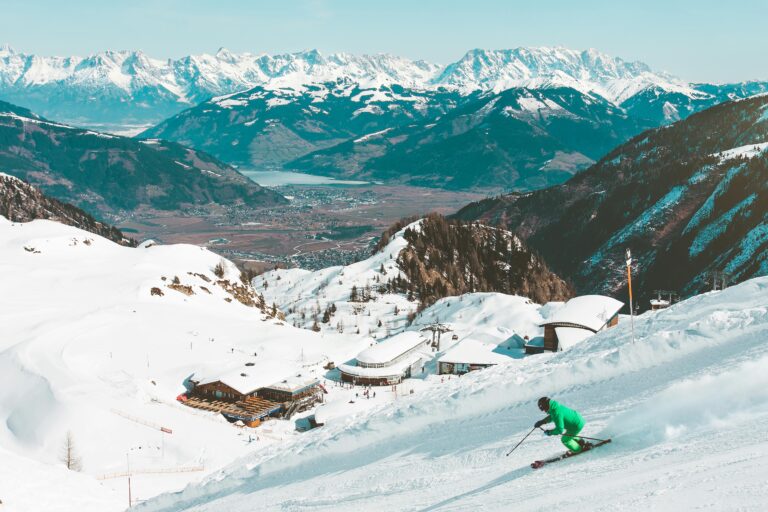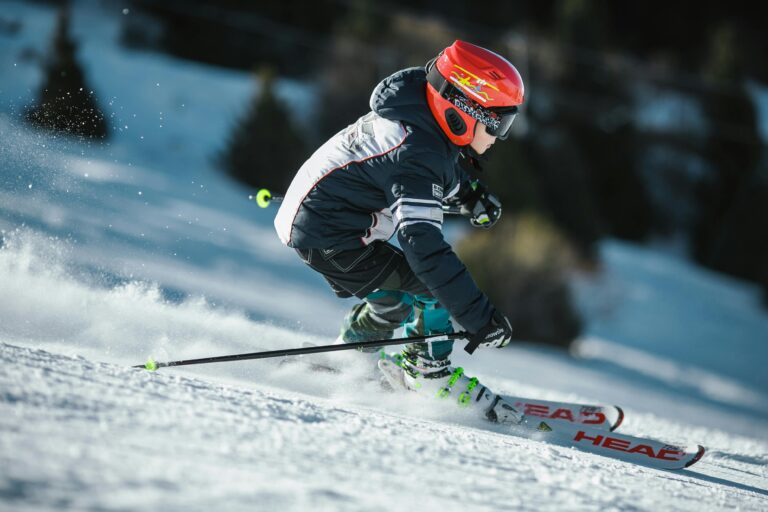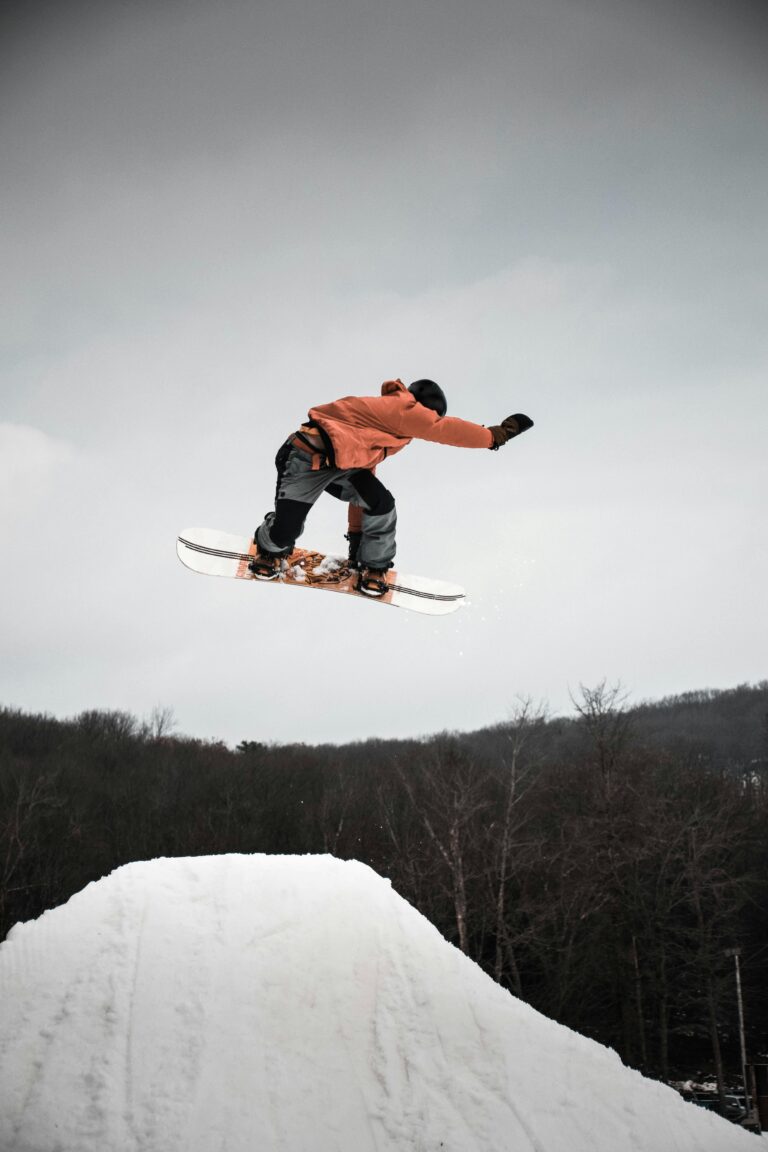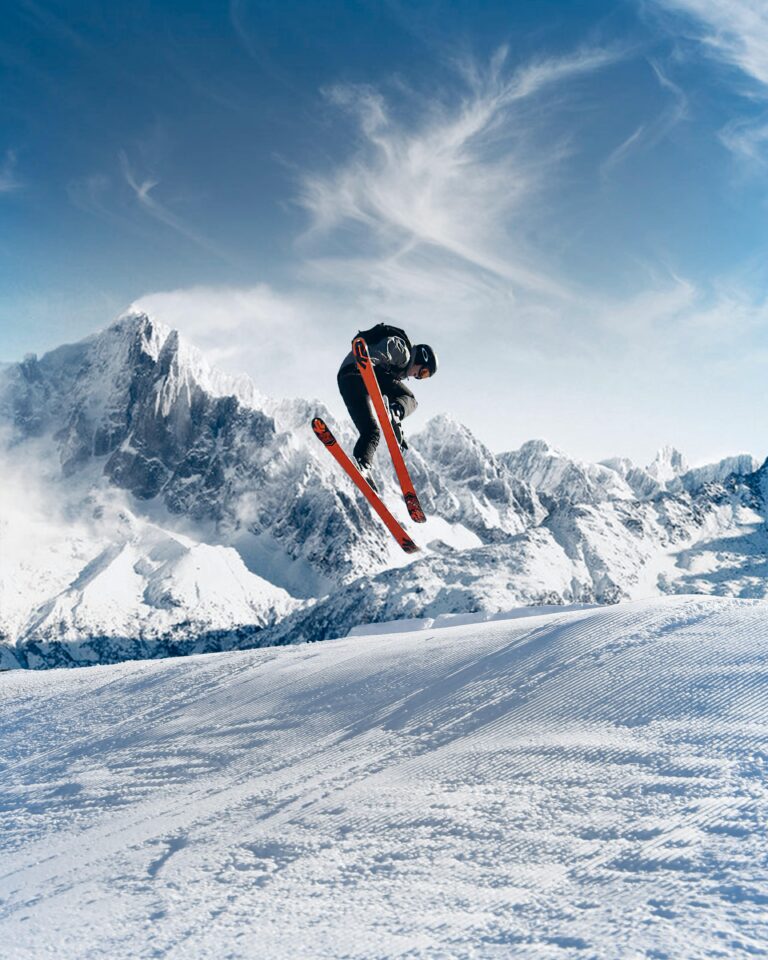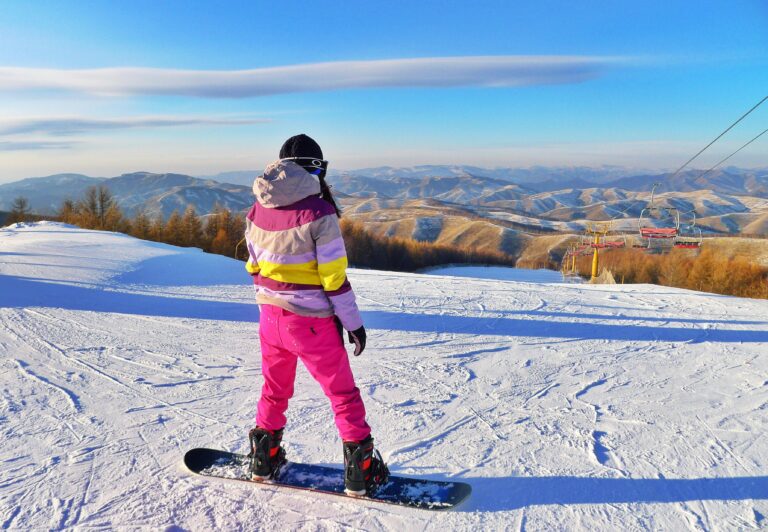Yes, overweight individuals can ski safely with the right approach, choosing gentle slopes, using suitable equipment, and prioritizing safety precautions. Skiing not only provides excellent aerobic exercise that enhances balancing skills but also contributes positively to mental health. Taking ski lessons can also create a welcoming and adaptive environment.
Let’s clear something up right away: skiing isn’t just for a certain body type. If you’ve ever hesitated because you think your weight might hold you back or make skiing unsafe, I’m here to tell you it doesn’t have to be that way. Skiing is for everyone, no matter your size. I’m going to walk you through how to get on the slopes confidently and safely.
Understanding the Safety of Skiing for Overweight Individuals
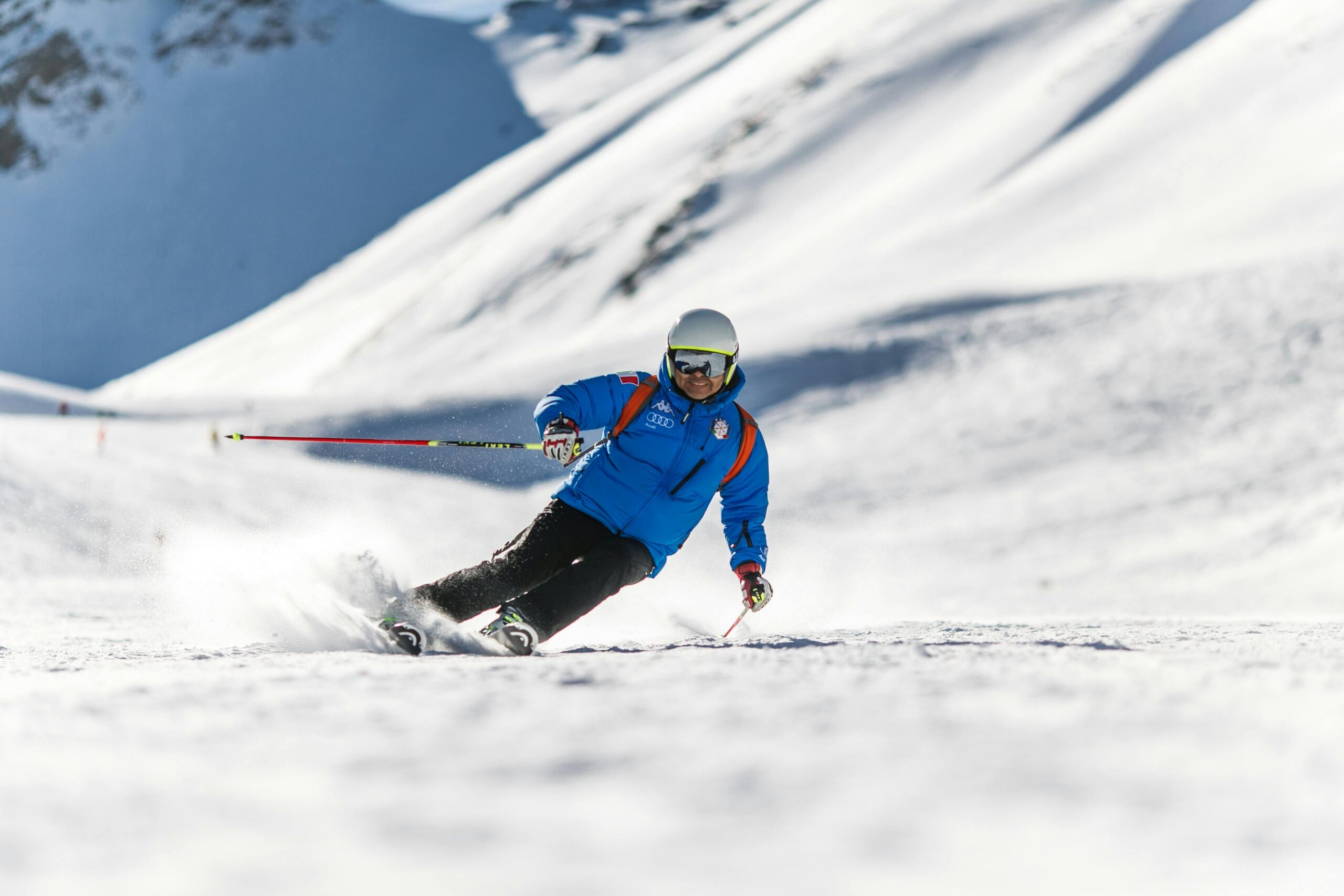
Skiing takes endurance, balance, and some agility. If you’re carrying extra weight, you might worry about safety—and that’s totally fair. But you can absolutely manage these challenges with some smart choices.
- General Safety Considerations:
- Choose the Right Slopes: Start easy. Green (beginner) slopes are flatter and gentler — perfect for building confidence without risking nasty tumbles.
- Proper Gear: Gear that fits you well isn’t just comfortable—it’s crucial to avoid injuries. Ill-fitting boots or skis can throw off your balance fast.
- Hydration and Warm-Up: I always say: never underestimate the power of a good warm-up and drinking plenty of water. It helps your muscles stay flexible and can keep injuries at bay.
- Common Misconceptions:
- Skiing is Only for Fit Individuals: Nope. That’s a myth that scares a lot of folks away. Skiing welcomes all skill levels and body types.
- Higher Weight Equals More Risk: Challenges exist, sure, but with the right guidance and training, you can ski safely.
- Importance of Experience:
- If you have some experience, great! It teaches you to respect your limits and improve your technique, which makes skiing way more enjoyable and safe.
If you want to dig into safety specifics, check out my ski safety tips guide for some solid advice that suits any skier.
Is Skiing Safe for Overweight People?
Skiing’s physical demands can be heightened for heavier individuals, but the inherent risk can be managed effectively. Education on proper techniques, use of suitable equipment, and conducting physical assessments can mitigate potential injury risks. Statistics show that overweight individuals can ski successfully, focusing on balance and control.
Let’s get real about the challenges:
- Physical Demands: Skiing involves controlling speed, making turns, and keeping your balance—which can take more energy if you weigh more. That means prepping your body and knowing when to take breaks.
- Inherent Risks: Like any sport, injuries can happen—anything from a sprain to a fracture. But these risks drop when you follow good technique and maybe take a course or two.
- Statistical Information: Studies show overweight skiers may have higher risks of knee injuries due to joint stress. The fix? Work on your technique and build up gradually before tackling tough runs. If you want, I break down common skiing injuries and how to avoid them here: how skiing can cause knee pain and other related issues.
Key Health Considerations When Skiing Overweight
Health considerations for overweight skiers need special attention, particularly focusing on cardiovascular strain and joint stress. Establishing a fitness regimen before skiing is highly beneficial, and consulting a healthcare provider familiar with skiing dynamics is advisable to ensure a safe experience.
Here’s what I’d focus on before you hit the slopes:
- Cardiovascular Strain: Skiing is aerobic—it gets your heart pumping. If you haven’t been active lately, slowly adding cardio activities like cycling or brisk walking will make your runs easier and safer.
- Joint Stress: Extra weight can be tough on your knees and hips. Doing strength exercises for your legs, swimming, or resistance band workouts can really help protect your joints.
- Fitness Regimen: Spend a few weeks boosting your fitness. It doesn’t have to be hardcore—just consistent enough to improve stamina and strength.
- Consulting Healthcare Providers: Talk to a doctor or physical therapist familiar with skiing. They can help tailor a plan so you’re ready and reduce injury risks.
Ski Gear Recommendations for Overweight Individuals
Overweight skiers should prioritize selecting appropriate ski gear, focusing on wider skis and well-fitted boots. Equipment suited to one’s body type can significantly enhance balance, stability, and comfort during skiing.
Gear matters—a lot. Here’s what to look for:
- Ski Types:
- Wider Skis offer better stability. They spread your weight out more, which helps you stay balanced, especially if you’re new or on softer snow.
- Ski Sizes:
- Choose skis based on your weight and height. Shorter skis make turning easier, but if you want a smoother ride on flat areas, slightly longer skis can help.
- Boots and Bindings:
- A comfortable but snug fit is non-negotiable. Loose or tight boots can ruin your day—and your knees. Make sure bindings are set correctly to release properly if you fall.
If you plan on renting gear, here’s a good read on ski equipment rental costs so there are no surprises.
Effective Skiing Techniques for Overweight Skiers
Overweight skiers can benefit from specific techniques designed to improve balance and overall skiing experience. Utilizing a wide stance, gradual learning, and upper body strength exercises can all assist in enhancing control on the slopes.
Try these techniques:
- Wide Stance:
- Stand a bit wider than usual. It lowers your center of gravity and improves balance, especially when you’re standing still or going slow.
- Emphasizing Control and Precision:
- Don’t rush down the hill like you’re in a race. Take controlled, gradual turns — they’re safer and more fun.
- Upper Body Strength:
- A stronger upper body helps with holding your poles and keeping good posture. Try push-ups or light resistance training before your trip.
Advantages of Skiing for Overweight Individuals
Skiing provides numerous benefits, both mentally and physically, particularly for overweight individuals. Weight management, improvement in mental health, and anecdotal success stories underscore why skiing can be an enriching experience.
Here’s why skiing’s worth it:
- Health Benefits and Weight Management:
- You can burn up to 500 calories an hour skiing. That’s a solid workout disguised as fun!
- Mental Health Improvement:
- Fresh air, movement, and conquering slopes boost mood and reduce stress. Skiing can be a natural antidepressant.
- Inspirational Anecdotes:
- Take Mark’s story—he said, “Skiing helped me find strength I didn’t know I had.” That boost in confidence is priceless.
Addressing Common Misconceptions about Skiing and Weight
Societal perceptions often portray skiing as an elite sport exclusive to the fit. This narrative can be damaging, as many overweight individuals feel excluded from the skiing community. Addressing these misconceptions and encouraging community support are vital for fostering inclusivity.
Let’s bust some myths:
- Perception of Skiing:
- Skiing isn’t just for the super fit or skinny. It’s for anyone who wants to give it a shot.
- Psychological Barriers:
- Feeling self-conscious or expecting judgment is normal, but don’t let that stop you. Connecting with friendly, diverse ski groups can make a world of difference.
- Community Support:
- Many ski clubs now celebrate all body types. Finding your tribe can turn skiing from intimidating to downright fun.
Ski Lessons and Support for Overweight Skiers
Ski lessons can bridge gaps in understanding and skill, especially for overweight skiers. Finding local ski schools that offer specialized lessons and support groups can enhance the ski experience.
If you’re new or nervous, lessons help big time:
- Ski Schools: Many resorts offer beginner lessons — some even tailor programs for different needs. A good instructor adjusts the pace to you.
- Support Groups: Ski clubs can provide motivation and a sense of belonging. Trust me, learning with others makes it less lonely and more encouraging.
For planning your budget, check out my ski cost breakdown to avoid sticker shock.
Recommended Ski Resorts for Overweight Skiers
Choosing the right ski resort is paramount for overweight skiers seeking a comfortable experience. Resorts with beginner-friendly terrain and accessible facilities can make all the difference.
| Resort Name | Location | Accessibility Features | Positive Reviews |
|---|---|---|---|
| Breckenridge | Colorado | Wide trails, adaptive programs | “Perfect for beginners, lots of options!” |
| Park City | Utah | Inclusive ski lessons | “Community vibes, encouraging instructors!” |
| Vail | Colorado | Diverse runs, beginner areas | “Great for all levels, absolutely loved it!” |
Prices vary, so you might want to check my ski resort cost comparison guide before booking.
Preparing for Your First Ski Trip as an Overweight Individual
Preparation is key for a successful skiing trip. From planning fitness activities leading up to booking suitable lessons, every step should foster a positive experience on the slopes.
Here’s how to get ready:
- Fitness Preparation:
- Do light cardio (20–30 minutes most days) leading up to your trip. It’ll boost your stamina and make skiing less exhausting.
- Booking Equipment:
- Reserve your gear and lessons early so everything fits right and you’re not scrambling last minute.
- Packing Essentials:
- Pack moisture-wicking layers, a good helmet, and anything you need to stay warm and safe.
Need money-saving tips? I’ve got a whole guide on keeping ski trips affordable.
Personal Experiences and Success Stories
Many overweight skiers have turned their skiing journeys into remarkable stories of resilience and triumph. Sharing these anecdotes exemplifies the notion that skiing can belong to everyone.
Jessica’s story stuck with me: she started skiing at 220 pounds and worried about stares. Instead, she found a welcoming community and discovered strength she never knew she had. Stories like Jessica’s show that skiing isn’t just about physical ability—it’s about joy, confidence, and belonging.
FAQs
Is skiing harder for heavier people?
Skiing can be more challenging due to the physical effort of balancing and turning. But with the right gear and techniques, overweight skiers can learn to ski well and enjoy every run.
What type of skis should overweight people use?
Wider skis are best. They offer better stability and control, making it easier and safer to ski.
Can overweight skiers take lessons?
Absolutely! Lessons tailored to your needs can teach you proper technique and boost confidence on the slopes.
Are there any health risks for overweight skiers?
Yes, extra weight can strain joints and your heart. A healthcare provider can help you get ready safely with a personalized fitness plan.
Now you’ve got the scoop to ski safely and have a blast no matter your size. Don’t forget to peek at my ski safety tips for more ideas on hitting the slopes smartly.
For some extra help, here are a couple of videos I recommend:
– How to Get Started With Skiing
– Essential Skiing Tips for Beginners
Go get those snowy adventures—happy skiing!

